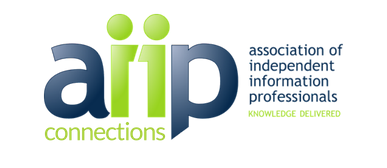Another look: Stay focused with long-term planning

This is an updated version of a post that was originally published in 2017.
By Marcy Phelps
At meetings of the I-25ers, a group of independent information professionals located in and around Colorado, we often discuss how to stay focused. It’s getting harder and harder, with the many hats we wear and the ever-increasing rate of change in our lives and work, to make decisions about our businesses and carry them out.
Setting goals for the next 5 or 10 years provides focus in our lives and milestones for success.
It will also keep you sane.
After running a business for more than 20 years, I’ve found that long-range planning is the key to developing a path and staying on track.
We’re constantly juggling our varied job functions. As business owners, in addition to being researchers, knowledge managers, or consultants, we also take care of an assortment of volunteer, administrative, financial, marketing, and other tasks on a daily basis. Having a long-range plan keeps you on target for each of your many roles.
It’s also easy these days to get distracted by the latest new toy or way of thinking. Technology develops at an ever-increasing rate, and ideas spread in an instant. It’s difficult to know what you should or should not pursue. Your long-range plan becomes a measure for how it all fits in with your life and your goals.
Where are you going?
Long-range planning requires some time to think about where you want to go and how you’re going to get there. Block out a morning or afternoon, shut off email and other distractions, and find a place to work where you’ll be most creative.
Here are some tips for getting started with developing your personal and professional long-range plan:
Think big – It’s OK if you don’t reach all your goals.
Go ahead and dare to dream. Visualize what you want your life to look like in 5 to 10 years. What kind of work do you want to do? At what level do you see your business? Having trouble seeing things that far out? Try looking at just the next 2-3 years.
Think about how to get from here to there
Consider what skills, resources, etc. you need to accomplish your goals. Should you take a class, join an association, hire a coach, or sign up for mentoring? What will it cost to carry out your plan, and how will you pay for it?
Put it in writing
Don’t ask me why, but there’s something about committing something to paper that sets things in motion. Trust me on this. When confronted by something new, take out your plan and see if it aligns with where you want to be and what you want to become.
Stay flexible
While your goals keep you on track, stay open to new opportunities. You can’t plan for those out-of-the-blue job offers or disruptive technologies (who knew 5 years ago that we’d interact with clients on Facebook?). Again, use your plan as a guide.
If there’s one thing I love about owning a business, it’s that I’m in control. It just takes a little planning to get on the right path and to stay focused. The investment you make now will pay off in the future.
As a professional investigator, a Certified Fraud Examiner, and the owner of Marcy Phelps & Associates Inc., Marcy Phelps helps clients mitigate risk when making important business decisions. She served as AIIP’s 2009-2010 President and is currently the AIIP Connections blog editor.





